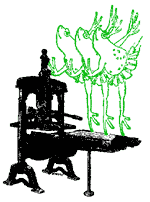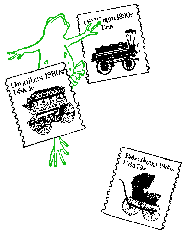 |
|||||||||||||
| In 1765, the British Parliament passed the Stamp Act. The legislation required that Americans pay to have stamps applied to deeds, mortgages, law licenses, playing cards, almanacs, liquor licenses, newspapers, and nearly anything else that would stand still and allow itself to be stamped. The funds thus garnered would go to support the British troops stationed in the colonies. The Americans were not amused. Testy about the issue of taxation without representation, they had had no say in Parliament while the bill was being debated. Further, they were of the opinion that quartering British troops was enough of an imposition without being asked to pay for the privilege. The Virginia Assembly met to declare the act unjustand illegal and to pass a resolution protesting the Stamp Act and all similar taxation by Britain. The Massachusetts Assembly invited delegates from all the colonies to meet in protest, and nine of the thirteen accepted. The Stamp Act Congress met in New York in 1765 to declare that no more stamp taxes would be collected without the consent of the American people. Given all this unpleasantness, Parliament grudgingly rescinded the law in 1766. Of course, it was a bit late in the day. The colonists had organized and one thing was leading to anotherand before very long, Cornwallis was surrendering at Yorktown. Those stamps made us what we are today - Americans. |
|||||||||||||
| "Herr Gutenberg invented the printing press" | |||||||||||||
 |
|||||||||||||
|
|
|||||||||||||
 |
|||||||||||||
| "The Official Stamp" | |||||||||||||
 |
 |
||||||||||||
|
p. 1 | p. 2 | p. 3 | p. 4 | p. 5 | p. 6 | p. 7 | p. 8 | p. 9 |
|||||||||||||
|
|
|||||||||||||
|
|
|||||||||||||